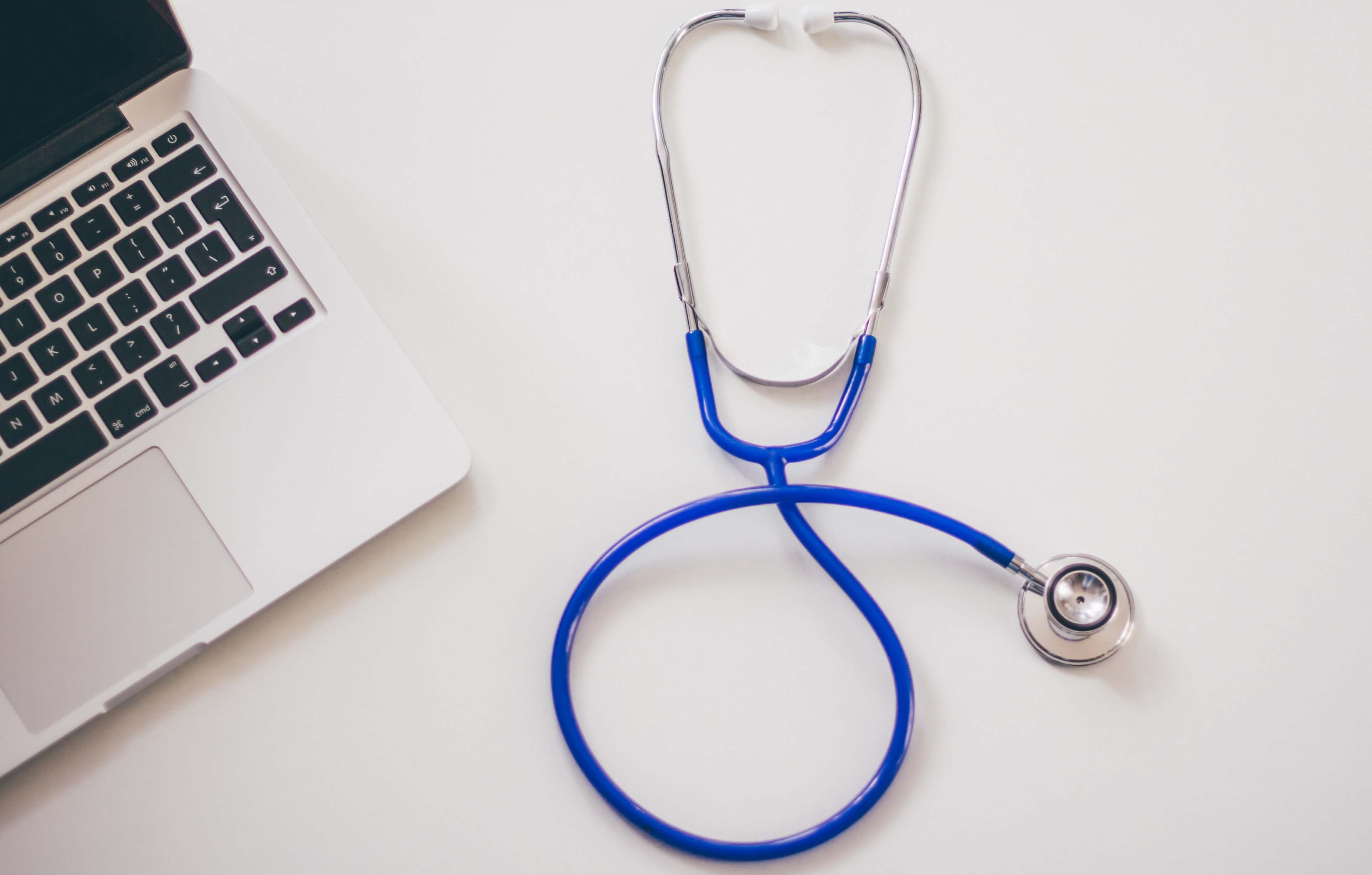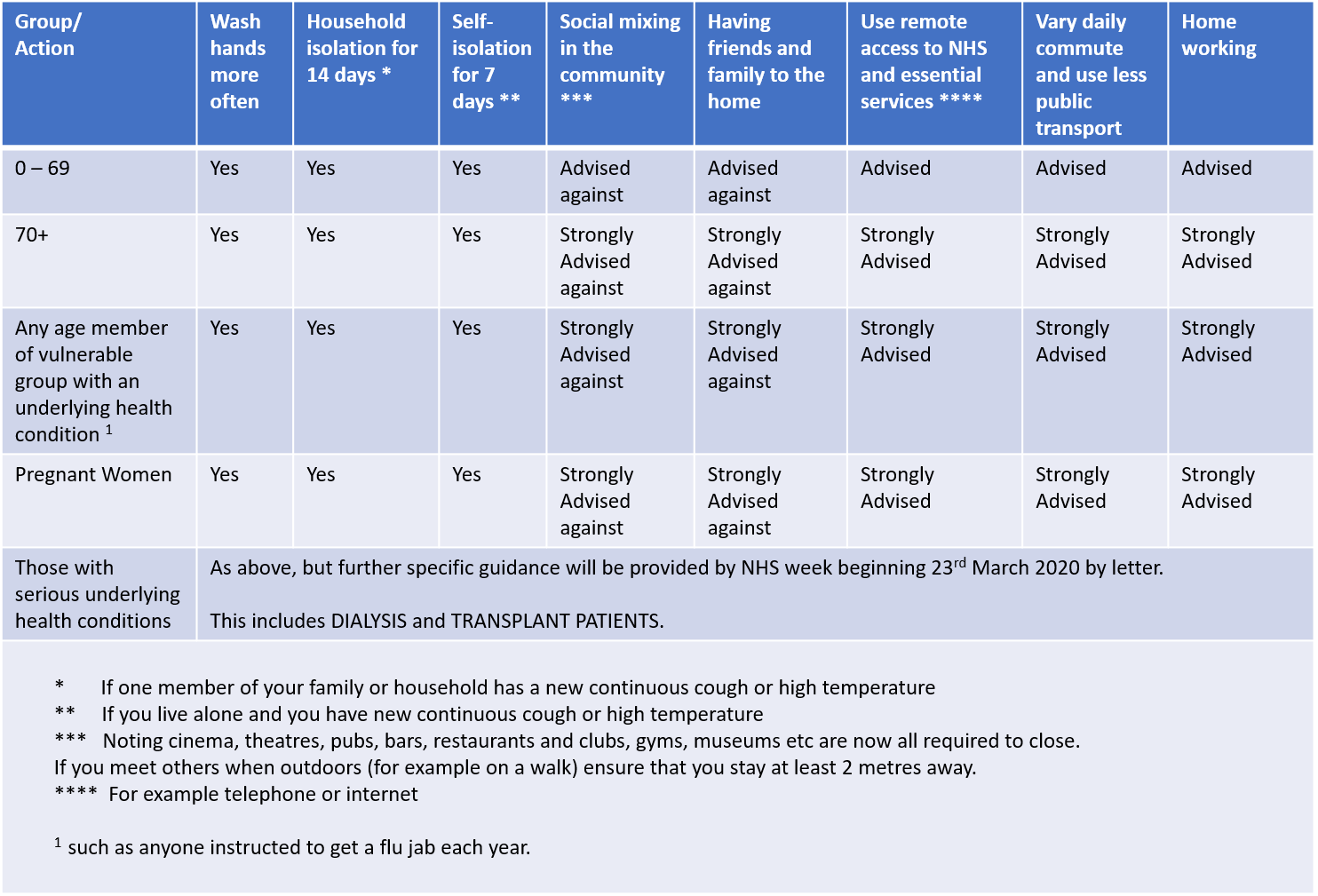Medical advice on coronavirus for kidney patients

This article tells you what to do if you experience coronavirus symptoms or feel unwell for other reasons, how to keep safe and more specific medical information for renal patients
What should I do if I think I have coronavirus (COVID-19)?

If you think you have developed symptoms of coronavirus, such as a new, continuous cough and/or a high temperature (above 37.8), seek clinical advice using the NHS 111 ONLINE coronavirus service: https://111.nhs.uk/service/COVID-19. If you do not have access to the Internet call NHS 111. Do this as soon as you get symptoms.
If you have an appointment or dialysis please phone ahead. Don't use hospital transport or you risk spreading the virus to other patients.
What if I feel unwell for other reasons?
If you have a medical emergency you should dial 999. The NHS has stressed that despite the coronavirus crisis they are still open for emergency care.
For more general problems visit https://111.nhs.uk/ or if you do not have access to the Internet call NHS 111.
You can still call your GP for an appointment although they may offer you a phone or video consultation rather than a face-to-face appointment.
If you have renal issue either call the transplant clinic or the ward for help. Be patient at this busy time.
How to keep safe
If you are shielding then follow the government guidelines. Also read and follow the instructions in your letter.
Touching frequently handled objects, particularly in public places, as well as being in close proximity to people coughing and sneezing, are the main ways of spreading the virus.
On the whole the best way to protect yourself is:
- employing good hand hygiene, by washing hands regularly especially before eating.
- using and disposing of a tissue when coughing or sneezing.
- avoid touching the face especially eyes and mouth.
- social distancing. This is particularly important for renal patients and the government advice it to stay at home for all but essential reasons. When out and about maintain at least 2m from other people.
- those at extreme vulnerability to the virus should he shielding for 12 weeks from the 22nd March 2020. You should have already received a letter if you are.
The table below contains the summary of advice (as of 22nd March) from the government.
The full details can be found at:
Hand washing
Good hand washing technique is important as many renal patients have been taught. This NHS video shows you how.
https://www.nhs.uk/live-well/healthy-body/best-way-to-wash-your-hands/
The virus can be inactivated by alcohol hand gels but also soap and water.
Medical advice for kidney patients
Kidney Care UK has put together advice from various renal resources and groups. This article provides excellent advice.


